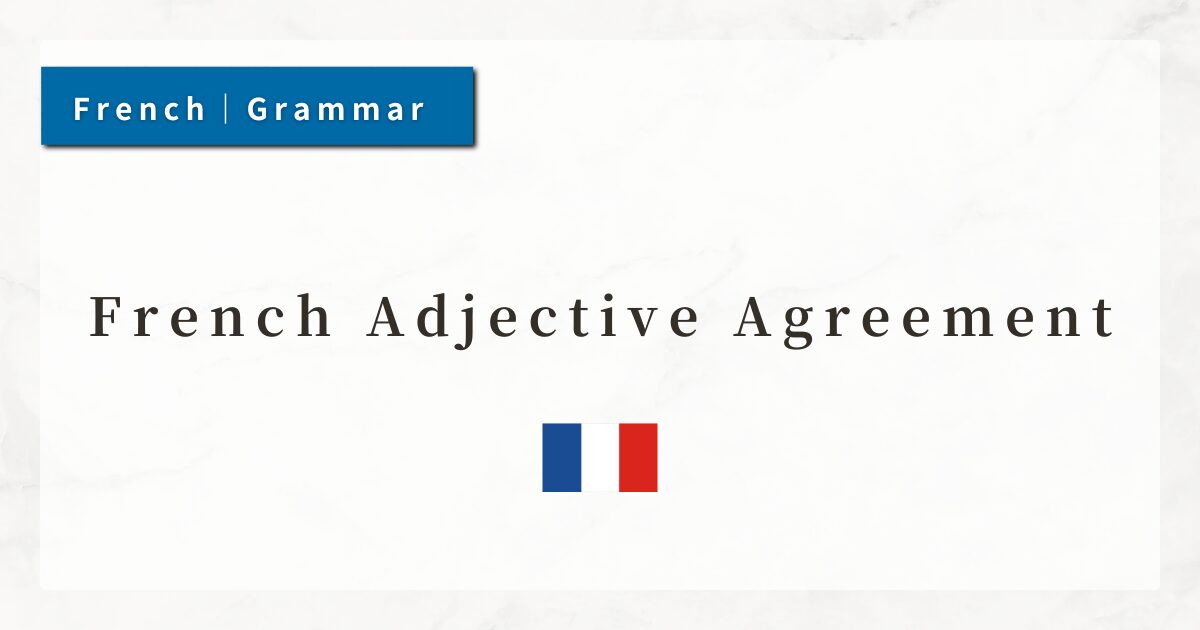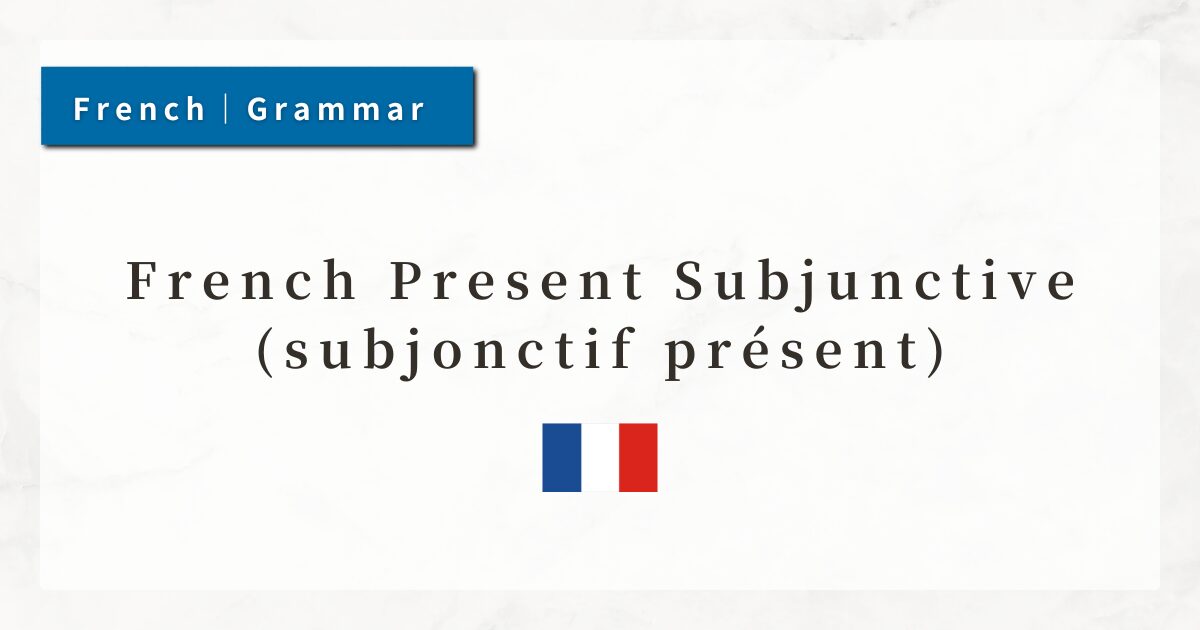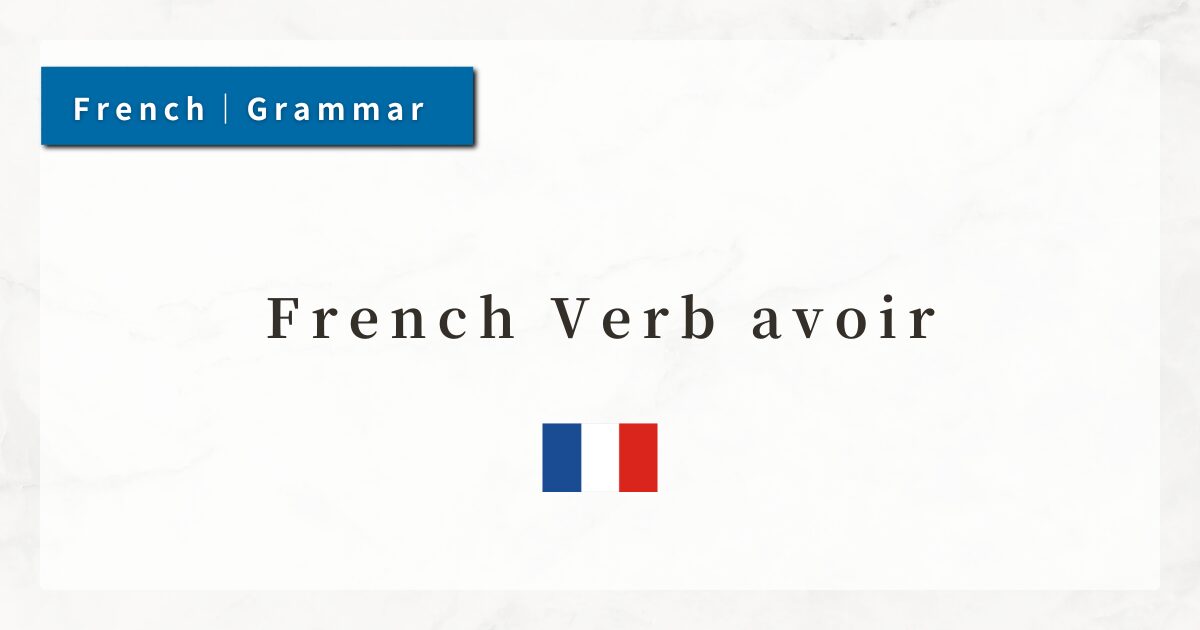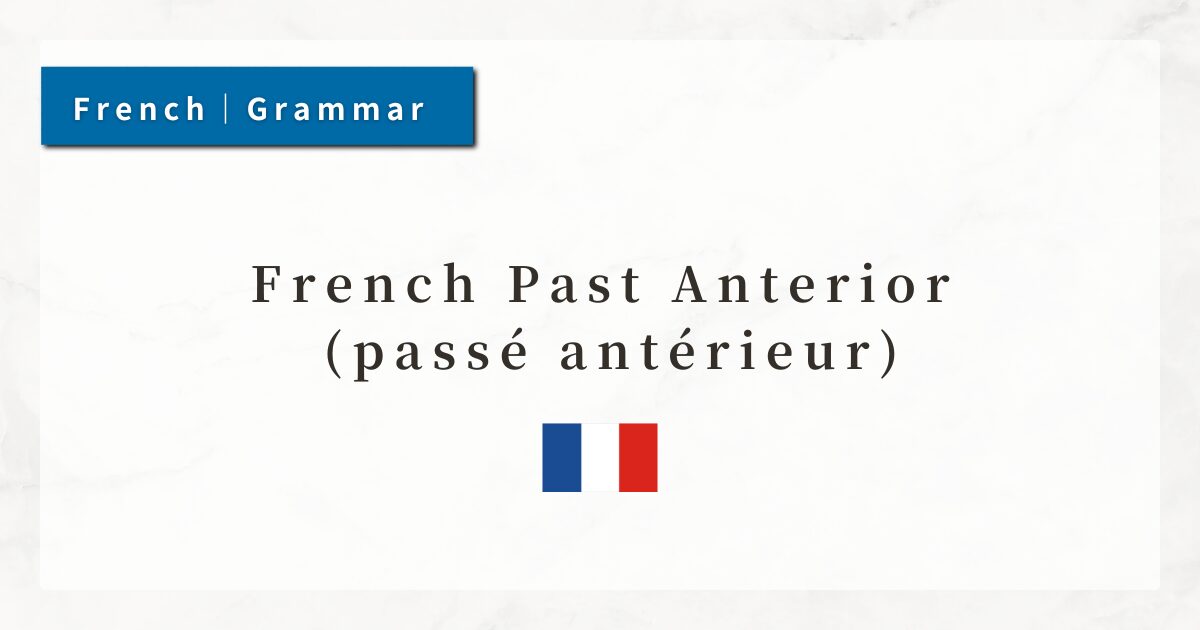#40 French Simple Future Tense (futur simple) | Conjugation Chart and Examples
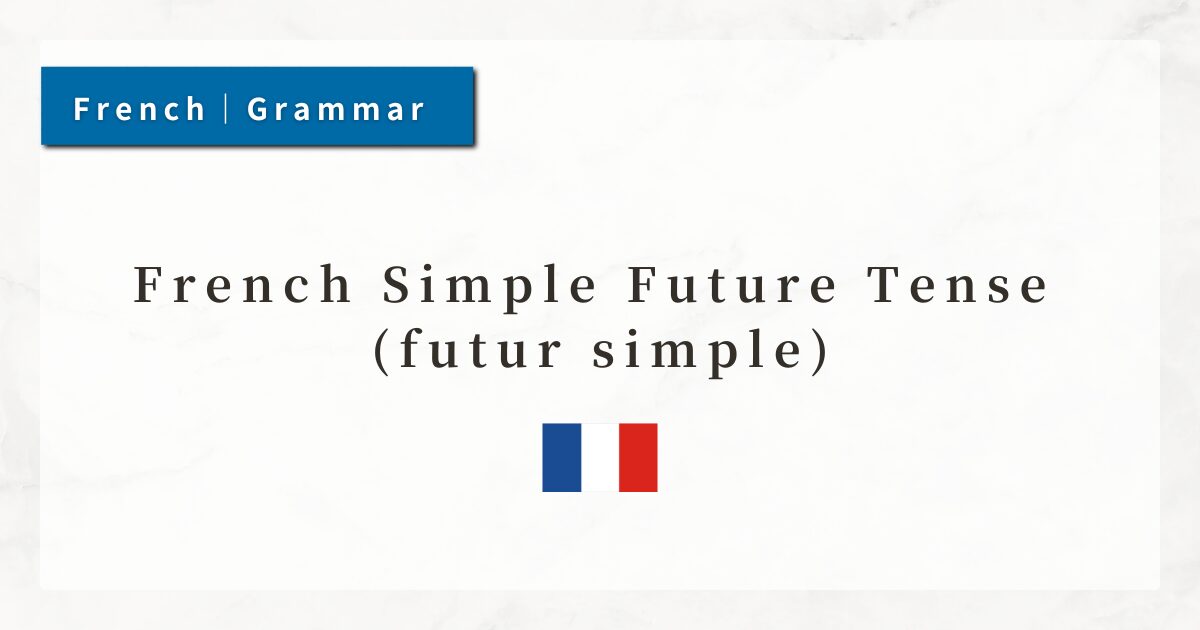
In French, there are two main ways to express the future: aller + infinitive (near future) and the simple future tense.
The simple future tense is used to express intentions, plans, promises, or predictions, and often corresponds to English “will” or “shall.” It conveys meanings such as “I will…,” “I intend to…,” or “I shall….”
In this lesson, I will explain the meaning, formation, and usage of the simple future tense with examples.
1. What Is the Simple Future Tense?
The futur simple (simple future) is one of the French tenses used to describe future events or actions.
It is typically used when the speaker expresses intention, prediction, certainty, promise, or a planned event.
- Planned schedule
→ “I will travel next week.” - Prediction or expectation
→ “He will surely succeed.” - Speaker’s intention or promise
→ “I will help you.” - Conditional clauses
→ “If it rains, I will stay home.”
Formation of the Simple Future (Regular Verbs)
The basic rule for forming the simple future is: “Infinitive + endings (-ai, -as, -a, -ons, -ez, -ont).”
For -re verbs, drop the final -e before adding the ending.(vendre → je vendrai)
| Person | Ending | Example (parler = to speak) |
|---|---|---|
| je | -ai | je parlerai (I will speak) |
| tu | -as | tu parleras (you will speak) |
| il / elle / on | -a | il parlera (he will speak) |
| nous | -ons | nous parlerons (we will speak) |
| vous | -ez | vous parlerez (you will speak) |
| ils / elles | -ont | ils parleront (they will speak) |
These endings are the same for all three verb groups (-er, -ir, -re), with only slight differences in stems.
2. Conjugation Rules by Verb Group
2-1. -er Verbs (e.g., parler = to speak)
Add endings directly to the infinitive.
- je parlerai
- tu parleras
- il parlera
- nous parlerons
- vous parlerez
- ils parleront
2-2. -ir Verbs (e.g., finir = to finish)
Also use the infinitive + endings.
- je finirai
- tu finiras
- il finira
- nous finirons
- vous finirez
- ils finiront
2-3. -re Verbs (e.g., vendre = to sell)
Remove the final -e before adding the endings.
- je vendrai
- tu vendras
- il vendra
- nous vendrons
- vous vendrez
- ils vendront
2-4. Irregular Verb Stems
Some of the most common verbs take irregular stems in the simple future. These verbs must be memorized.
| Verb | Meaning | Future Stem | Example (je-form) |
|---|---|---|---|
| être | to be | ser- | je serai (I will be) |
| avoir | to have | aur- | j’aurai (I will have) |
| aller | to go | ir- | j’irai (I will go) |
| faire | to do/make | fer- | je ferai (I will do) |
| voir | to see | verr- | je verrai (I will see) |
Because these stems differ from the present tense forms, it is most efficient to learn them by heart.
3. Key Uses of the Simple Future
3-1. To Express Planned Events or Schedules
The simple future expresses an already planned action or arrangement.
- Je passerai mes vacances à Nice.
(I will spend my vacation in Nice.) - Nous déménagerons en septembre.
(We will move in September.)
3-2. To Express Intention or Will
It conveys determination, intention, or willingness to act.
- Je t’aiderai.
(I will help you.) - Je ferai tout mon possible.
(I will do my best.)
This usage often appears in promises, encouragement, or offers of assistance.
3-3. To Express Predictions or Assumptions
The simple future is also used for assumptions and forecasts.
- Il ne viendra pas ce soir.
(He will not come tonight.) - Il fera beau demain.
(The weather will be nice tomorrow.) - Tu réussiras à ton examen.
(You will pass your exam.)
3-4. In Conditional Clauses (si + present, future)
In conditional sentences, the si-clause takes the present tense, and the main clause takes the simple future.
- Si tu veux, nous partirons ensemble.
(If you want, we will leave together.) - S’il fait beau, on ira à la plage.
(If the weather is nice, we will go to the beach.)
4. Summary
- The simple future expresses intention, prediction, or planned events, and corresponds to “will/shall” in English.
- Formed with infinitive + endings (-ai, -as, -a, -ons, -ez, -ont).
- Regular for -er and -ir verbs; -re verbs drop the final -e.
- Commonly used for plans, intentions, predictions, and in conditional sentences.
- Some verbs take irregular stems, and these should be memorized.

